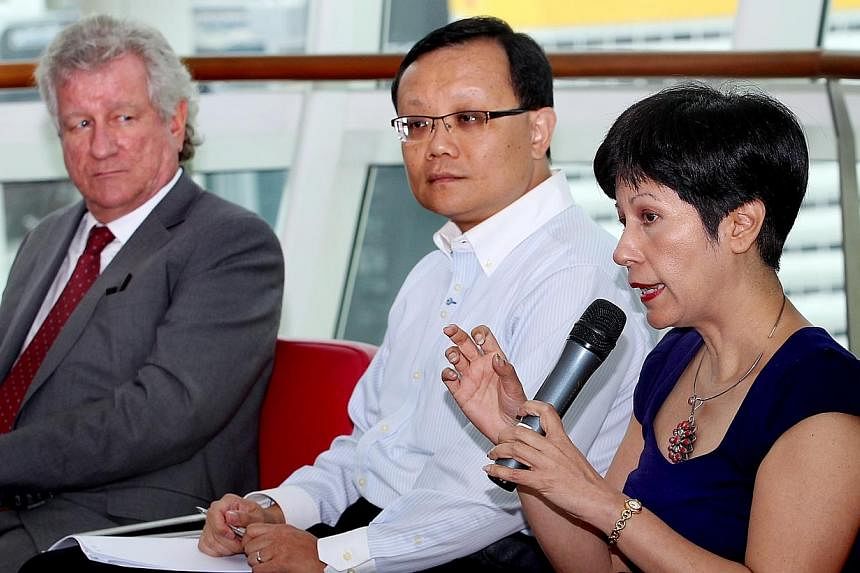SINGAPORE - The mindsets of parents, students, and employers need to shift to ensure that the outcomes laid out by the Aspire report can be met, Senior Minister of State for Law and Education, Ms Indranee Rajah, said on Wednesday.
Speaking at the first dialogue session after the Government accepted the recommendations of the Aspire (Applied Study in Polytechnics and ITE Review) report, Ms Indranee, who had chaired the committee that put out the report, acknowledged that the thinking that there is only one path to success is difficult to break.
But the Government is sincere to make that change, and is committed to ensuring that there are multiple pathways to success. This is evident from the growing education options available to students, she said.
Speaking at National University of Singapore's U@live forum which features alumni speakers, Ms Indranee told the 200-strong audience that specialised schools such as the School of the Arts and the Singapore Institute of Technology cater to students with different interests.
"Every school also has it's area of specialty, so students have a choice of where to go," she said.
But Mr Viswa Sadasivan, a former Nominated Member of Parliament who moderated the forum, said the multiple pathways do not appear to be "on a level playing field".
He questioned how such prejudices can be managed. For instance, some still think that SIM University (UniSIM) is of a lower standing than NUS, the Singapore Management University and the Nanyang Technological University, he said.
He added that it appears difficult for institutions based on lifelong learning or a more vocational track to achieve the same standing as those on the academic tracks.
But Ms Indranee said the universities should not be clones of one another. People may also have their reservations of UniSIM as it is relatively new "and not tried and tested as yet". She added that the Government will make sure the publicly-funded universities here deliver good quality programmes which will show through when its graduates are employed.
But there was no need to rush to obtain higher academic qualifications or get a degree "all in one bite", said Ms Indranee.
The aim of the Aspire report is to create pathways that would let people build on skills as they progress in the workforce, and "stack up" on the modular courses they can take along the way, she added.


